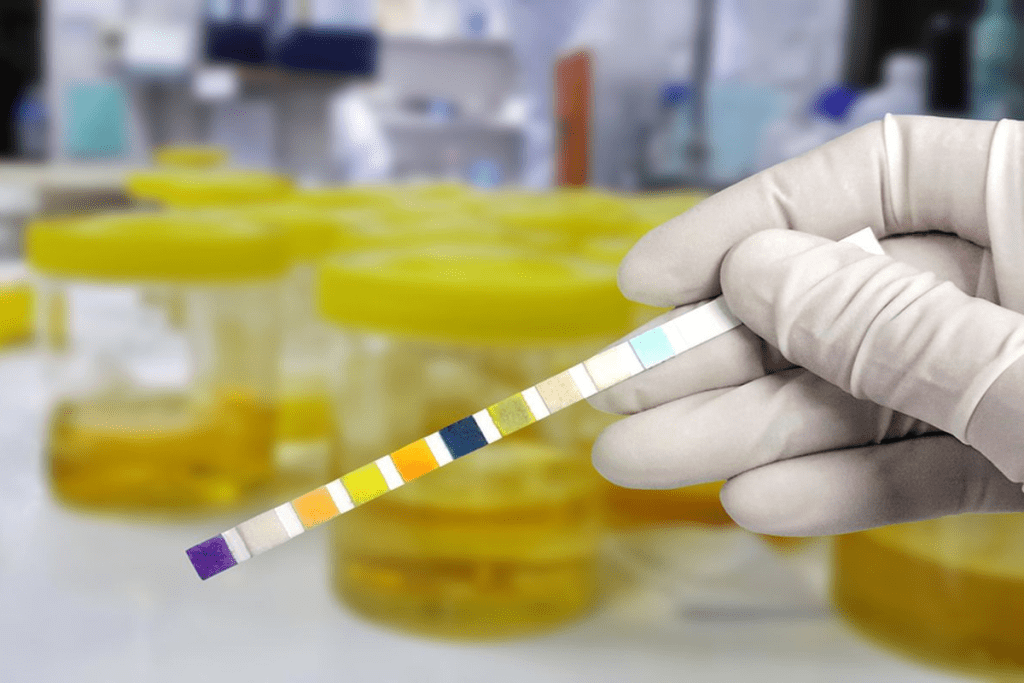Last Updated on October 31, 2025 by
Tired of a recurring UTI? Our ultimate guide uncovers the shocking reasons you keep getting them and provides a powerful prevention plan.
Recurrent urinary tract infections (UTIs) are a big health worry, mainly for women. More than half of all women get at least one UTI in their lives. Many struggle with recurring infections.

At Liv Hospital, we get how tough it is to deal with repeated UTIs. We aim to offer top-notch healthcare with full support and advice. Knowing why UTIs keep coming back is key to stopping them.
We know that recurrent UTIs really hurt your life quality. Our team uses the newest research and team care to tackle this common problem.
It’s important to know why urinary tract infections (UTIs) happen and why they come back. UTIs start when bacteria get into the urinary tract through the urethra. Then, they spread in the bladder.
A UTI is when bacteria grow in the urinary tract. E. coli causes about 80% of UTIs. Other bacteria, like Enterococcus faecalis, can also cause infections.

Recurrent UTIs are a big problem. Studies show 18“26% of women get them again after one infection. The risk gets higher with age, with 53% of women over 55 and 36% of younger women getting them again within a year. This shows we need better ways to prevent and manage UTIs.
E. coli and Enterococcus faecalis are the top bacteria causing UTIs. E. coli sticks to the bladder walls, making it hard to get rid of. For more on why UTIs come back, check out this resource.
Knowing why UTIs happen and why they come back is key to managing them. By understanding the role of bacteria like E. coli and Enterococcus faecalis, we can improve treatment and prevention.
Several factors can make you more likely to get recurring UTIs. We’ll look at these in detail. Knowing these risk factors can help you prevent UTIs.
Women are more likely to get UTIs because of their body shape. Their shorter urethra makes it easier for bacteria to get to the bladder. Anatomical differences are a big reason why women get UTIs more often than men.

As you get older, changes like menopause can raise your UTI risk. Lower estrogen levels can change your urinary tract, making it more likely to get infected. Knowing about these changes can help you manage your risk.
Having certain health issues, like diabetes, can make you more likely to get UTIs. Diabetes can make it harder for your body to fight off infections. Other health problems can also increase your risk.
Sexual activity is a big risk factor for UTIs, mainly in women. The friction during sex can push bacteria into your urethra, raising your infection risk. Knowing how sex can affect your UTI risk can help you take steps to prevent it.
By understanding these risk factors, you can lower your chance of getting recurring UTIs. You might need to make lifestyle changes, practice better hygiene, or get medical help for any underlying conditions.
Knowing the signs of UTIs early is key to managing them. We’ll show you the early signs and symptoms to watch out for.
Women are more likely to get UTIs because of their body shape. Look out for a strong urge to pee and a burning feeling when you do. You might also feel pelvic pain, have cloudy or smelly pee, or feel like you can’t empty your bladder fully.
Men can get UTIs, too, but it’s less common. They might feel pain when peeing, need to pee a lot, or have pain in their belly or butt. If the infection goes to the kidneys, they might also get a fever and shivers.
Ignoring UTIs can lead to kidney damage. Watch out for severe back pain, high fever, and feeling sick or vomiting. If you see these signs, get medical help right away.
UTI symptoms can be mixed up with other urinary issues like interstitial cystitis or overactive bladder. But UTIs have an infection that shows up in a urine test. Knowing the difference is important for the right treatment.
Spotting UTI symptoms early helps you get medical help fast. This can prevent bigger problems and make treatment work better.
UTIs can come back for many reasons, like bacteria becoming resistant and how we keep clean. Knowing why is key to finding good treatments and ways to stop them from coming back.
Not finishing the treatment for a UTI is a big reason they come back. If you don’t take all the antibiotics, the infection might not go away completely. This can cause it to come back.
It’s important to finish all your antibiotics, even if you start feeling better before you’re done.
Using antibiotics too much can make bacteria resistant. Bactrim, a common UTI treatment, might not work if the bacteria are resistant.
In these cases, doctors might need to use different antibiotics or treatments.
Some bacteria, like Proteus mirabilis, can create biofilms. These biofilms protect the bacteria from antibiotics and our immune system. This can cause infections to keep coming back.
It’s important to understand how biofilms work to find new ways to treat infections.
How we keep clean is also important in preventing UTIs. Poor hygiene or certain habits can make UTIs more likely.
Making small changes in our hygiene can help a lot in preventing UTIs from coming back.
By knowing these reasons, we can work with our doctors to find better ways to manage and prevent UTIs from coming back.
Liv Hospital is dedicated to treating persistent UTI infections with the latest methods. We make sure patients get the best care. Our team uses the latest research and treatment methods.
For years, Bactrim (also known as Septra) and Macrodantin have fought UTIs. They work well against E. coli, a common UTI cause. But, antibiotic resistance makes their use more complex.
At Liv Hospital, we look at each patient’s history and infection details before prescribing these antibiotics.
When traditional antibiotics don’t work, Methenamine hippurate is an option. It makes urine create formaldehyde, stopping bacterial growth.
This treatment isn’t for everyone. But it’s a good choice for long-term UTI prevention.
For those with recurring UTIs, specialized testing might be needed. This could include urine cultures or imaging studies.
Our team at Liv Hospital decides on the best tests and treatments for each patient.
Probiotics are being studied for UTI prevention. They help keep the urinary tract’s bacteria balance healthy. More research is needed, but they show promise.
We add probiotics to treatment plans when it’s right. It’s part of our overall UTI management strategy.
At Liv Hospital, we know how tough recurrent UTIs can be. To stop them, we focus on understanding risks, spotting symptoms early, and using the right treatments. This way, we can lower the number of UTIs and improve health for everyone.
We’re dedicated to giving top-notch care and support to our patients. Finding and treating UTIs well is key to stopping them from coming back. We team up with our patients to find out why they keep getting UTIs and make plans just for them.
Together, we can make health better and life better for those with recurrent UTIs. Our goal is to always get better and make sure our patients get the best care for their UTI needs.
A UTI happens when bacteria get into the urinary tract and cause an infection. E. coli is the main bacterium causing UTIs. But other bacteria, like Enterococcus faecalis, can also lead to infections.
Symptoms of UTIs differ between men and women. Both may feel pain when they urinate and need to go more often. Men might also feel pain in their rectum, while women might feel pain in their pelvis.
UTIs can come back for many reasons. These include not fully treating the infection before, bacteria becoming resistant to antibiotics, and biofilm formation. Hygiene also plays a role. Risk factors include being a certain age, having certain health conditions, and sexual activity.
Doctors usually treat UTIs with antibiotics. Bactrim, Septra, and Macrodantin are often the first choices. Sometimes, Methenamine hippurate is used as an alternative.
Probiotics might help manage UTIs. They help keep a healthy balance of bacteria in the urinary tract. This could lower the risk of getting infected.
UTIs are bacterial infections. Other urinary issues, like interstitial cystitis or overactive bladder, have different causes and symptoms. It’s important to get a correct diagnosis for the right treatment.
If you have severe symptoms like intense pain, fever, or trouble urinating, see a doctor right away. Quick action can prevent serious problems.
To avoid getting UTIs again, know your risk factors and practice good hygiene. Using probiotics or low-dose antibiotics might help. Working with a healthcare provider to create a plan tailored to you is also key.
Subscribe to our e-newsletter to stay informed about the latest innovations in the world of health and exclusive offers!